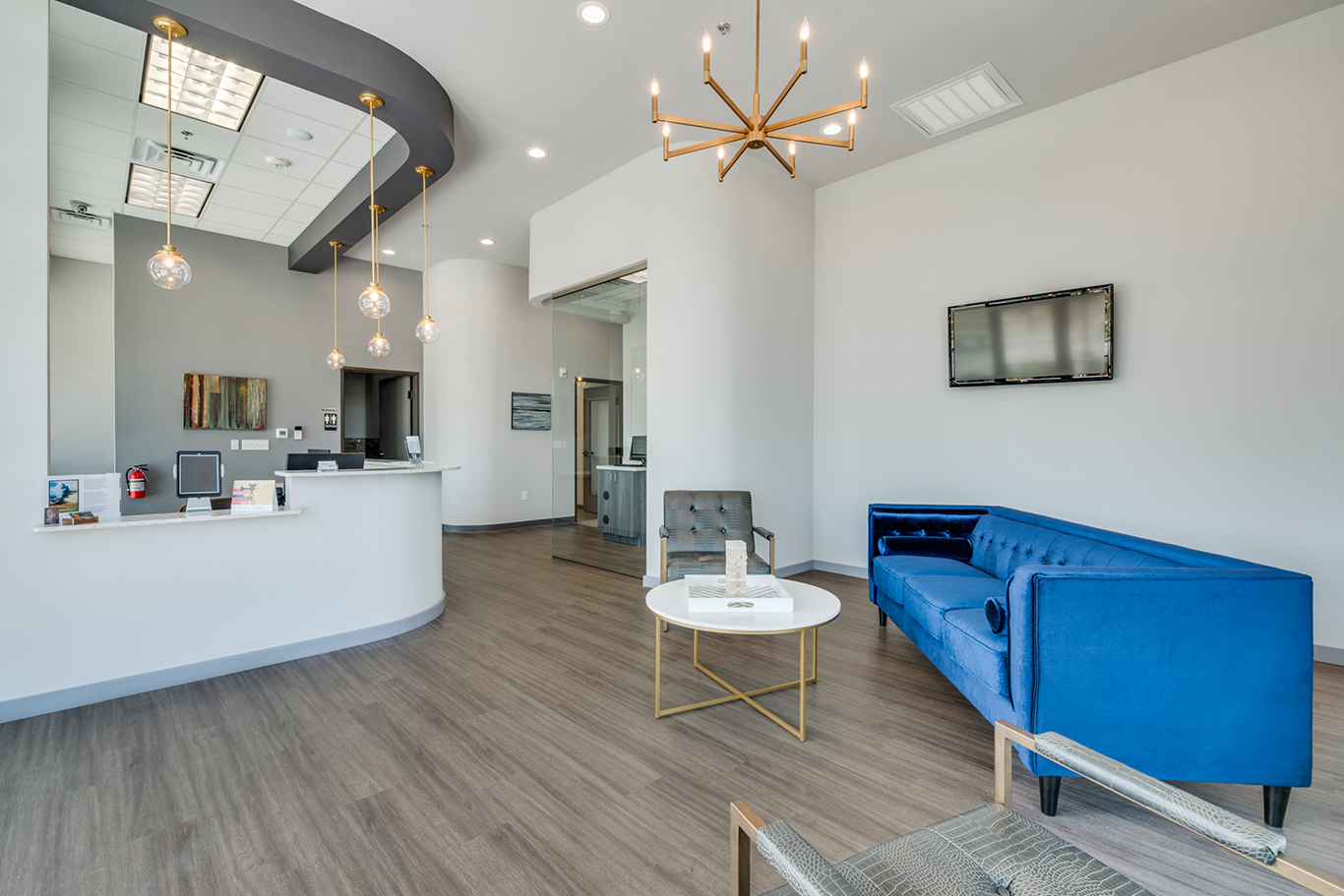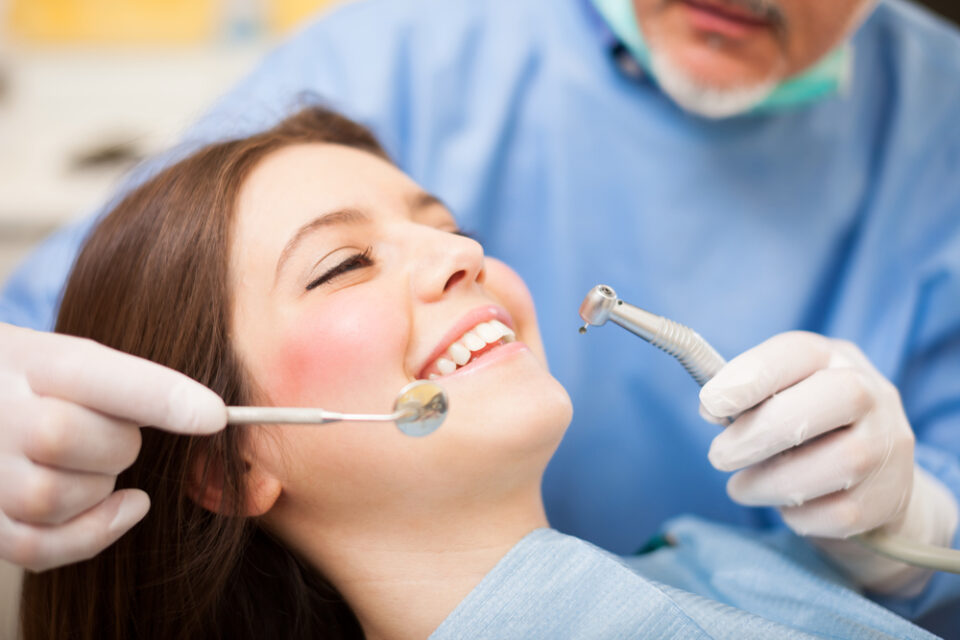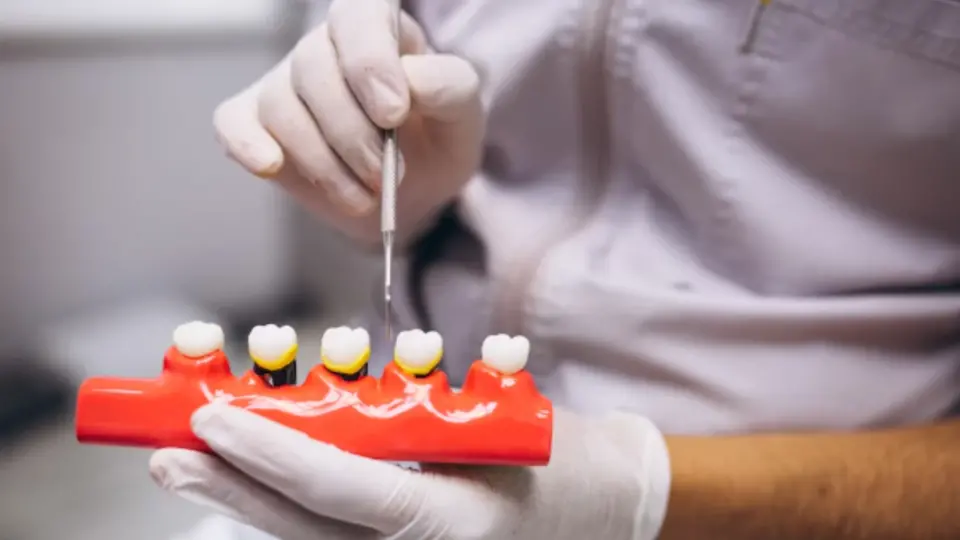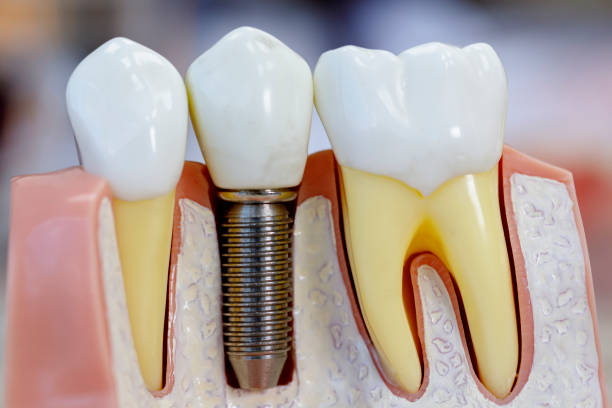Sleep Apnea and Dentures: Improving Sleep Quality
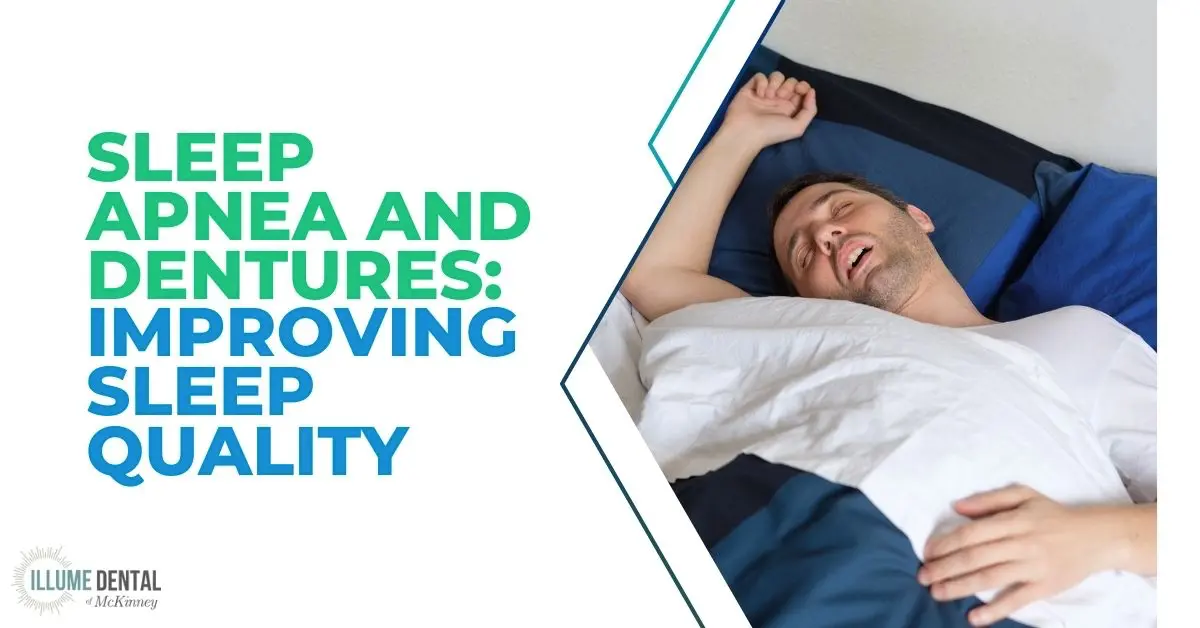
Were you aware that around 18 million adults in the United States experience sleep apnea? This condition is characterized by pauses in breathing or shallow breaths during sleep, resulting in poor sleep quality. While there are various treatments available for sleep apnea, dentures have emerged as a potential solution to improve sleep quality.
Can dentures help with sleep apnea?
Yes. In fact, dentures have been shown to be an effective treatment option for obstructive sleep apnea (OSA). OSA is the most common type of sleep apnea, characterized by a blockage or narrowing of the airway during sleep. This can result in breathing difficulties and disrupted sleep.
What’s the link between dentures and sleep?

The link between dentures and sleep is often overlooked, but it plays a significant role in overall health and well-being. For those who suffer from sleep apnea, wearing ill-fitting or uncomfortable dentures can worsen symptoms and disrupt sleep even further. On the other hand, properly fitting dentures can improve breathing and alleviate sleep apnea symptoms.
Moreover, missing teeth can also contribute to sleep apnea by causing changes in the structure of the mouth and throat. Dentures help maintain proper alignment of the jaw and teeth, preventing any obstructions in the airway that may lead to sleep disturbances. They also provide support to the muscles and soft tissues in the mouth, preventing them from collapsing during sleep.
How do dentures improve sleep quality?
Dentures are synthetic teeth designed to replace missing natural teeth, available in partial or full sets customized for a comfortable fit in your mouth. Discover how dentures can enhance the quality of your sleep:
- Dentures can improve airway stability: One of the primary causes of sleep apnea is an obstruction in the upper airway. Dentures can help to stabilize the muscles and tissues in this area, reducing the likelihood of obstruction and improving breathing during sleep.
- Dentures promote better tongue placement: The position of the tongue can also contribute to obstructive sleep apnea. Dentures can help keep the tongue in a more forward position, preventing it from falling back and blocking the airway.
- Dentures improve jaw alignment: Misaligned jaws can also lead to sleep apnea by obstructing the airway. Dentures can correct this misalignment, promoting better airflow and reducing breathing pauses during sleep.
- Dentures support facial muscles: Missing teeth can cause the facial muscles to sag and weaken, leading to a narrowed airway. Dentures provide support to these muscles, preventing them from collapsing and improving air flow.
- Dentures promote better sleep posture: Dentures help maintain proper alignment of the jaw while sleeping, reducing strain on the neck and throat muscles. This allows for a more comfortable sleep position and better breathing.
- Dentures improve overall oral health: Poor oral health can contribute to sleep apnea, as bacteria and infection in the mouth can travel to the airway during sleep. Dentures help maintain good oral hygiene by replacing missing teeth and reducing the risk of dental diseases.
Are There Sleep Apnea-Friendly Dentures?

Yes, there are specific types of dentures that are designed with sleep apnea in mind. These dentures use advanced materials and techniques to promote better breathing during sleep.
- Oral Sleep Appliances: These oral devices are custom-made by a dentist to fit over the upper or lower teeth, pushing the jaw forward to widen the airway. They can be used as an alternative to CPAP machines for mild to moderate obstructive sleep apnea.
- Tongue Stabilizing Devices: These devices hold the tongue in a forward position to prevent it from blocking the airway during sleep. They are recommended for those with mild to moderate sleep apnea and can be used in combination with oral sleep appliances or dentures.
- Nasal Dilators: These are small plastic devices that fit into the nostrils, keeping them open and improving airflow. They can be used for both snoring and sleep apnea, and are often recommended for those who cannot tolerate CPAP machines.
Can Dentists Diagnose Sleep Apnea?
Yes, dentists can play a crucial role in diagnosing sleep apnea. During routine dental check-ups, dentists may notice signs of sleep apnea, such as worn teeth, redness or swelling in the mouth and throat, or a large tongue. They can also ask patients about their sleep habits and refer them to a sleep specialist for further evaluation.
Dentists can perform an oral exam to check for any abnormalities in the airway or jaw that may contribute to sleep apnea. They can also create molds of the teeth and jaw to create custom oral sleep appliances or dentures that can improve breathing during sleep.
In conclusion, dentures can indeed help with sleep apnea. They not only improve the overall quality of sleep, but they also alleviate symptoms and reduce the risk of serious health complications. Dentists play a crucial role in diagnosing and treating sleep apnea, making it essential for patients to include regular dental check-ups as part of their overall healthcare routine.
If you or a loved one suffer from sleep apnea, it’s crucial to seek professional help and consult with a sleep specialist for proper diagnosis and treatment. Dentures may be recommended as a part of the treatment plan, but they should always be custom-made by a qualified dentist to ensure optimal results.
Don’t Let Sleep Apnea Control Your Life And Impact Your Health!

Seek professional help and explore the possibility of using dentures to improve your sleep quality and overall well-being. Remember, a good night’s sleep is essential for a healthy mind and body, so don’t hesitate to reach out to a qualified dentist or sleep specialist today.
With the right treatment plan, you can finally say goodbye to restless nights and hello to a peaceful, rejuvenating sleep. Don’t wait any longer, take action now and reclaim your sleep! Reach out to us at Illume Dental of McKinney and explore the potential benefits of dentures in improving sleep quality.
Remember, a good night’s rest is crucial for both physical and mental health, so don’t let sleep apnea control your life.
